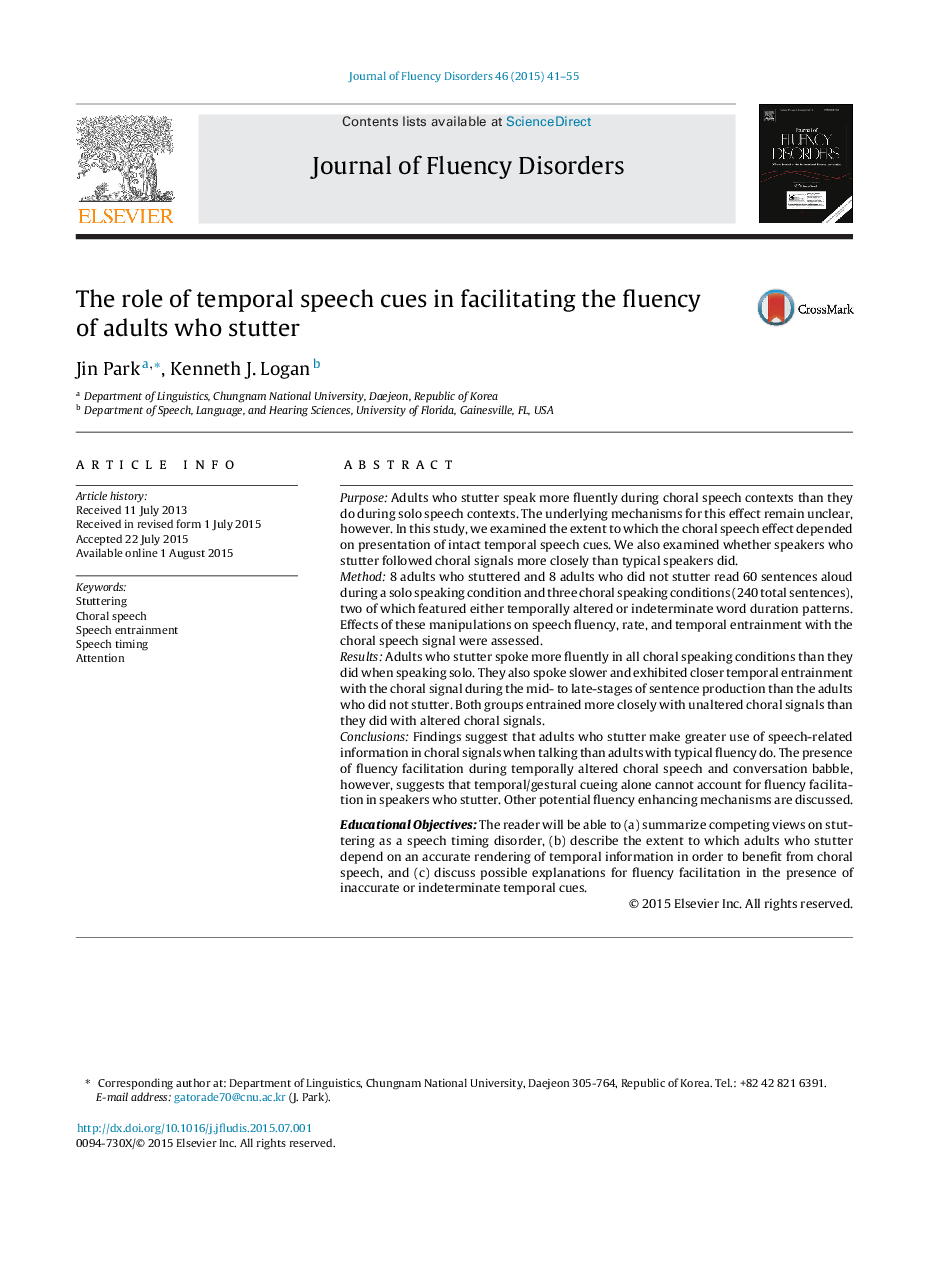| کد مقاله | کد نشریه | سال انتشار | مقاله انگلیسی | نسخه تمام متن |
|---|---|---|---|---|
| 911276 | 1473144 | 2015 | 15 صفحه PDF | دانلود رایگان |
• Adults who stutter spoke more fluently in temporally-altered choral conditions than they did when speaking solo.
• Adults who stutter also spoke slower and exhibited more temporal entrainment with the choral signal than the adults who did not stutter.
• Adults who stutter seem to make greater use of choral speech signals than adults who do not stutter.
• Adults who stutter do not require accurate temporal models of phonetic targets in order to enhance fluent speech.
PurposeAdults who stutter speak more fluently during choral speech contexts than they do during solo speech contexts. The underlying mechanisms for this effect remain unclear, however. In this study, we examined the extent to which the choral speech effect depended on presentation of intact temporal speech cues. We also examined whether speakers who stutter followed choral signals more closely than typical speakers did.Method8 adults who stuttered and 8 adults who did not stutter read 60 sentences aloud during a solo speaking condition and three choral speaking conditions (240 total sentences), two of which featured either temporally altered or indeterminate word duration patterns. Effects of these manipulations on speech fluency, rate, and temporal entrainment with the choral speech signal were assessed.ResultsAdults who stutter spoke more fluently in all choral speaking conditions than they did when speaking solo. They also spoke slower and exhibited closer temporal entrainment with the choral signal during the mid- to late-stages of sentence production than the adults who did not stutter. Both groups entrained more closely with unaltered choral signals than they did with altered choral signals.ConclusionsFindings suggest that adults who stutter make greater use of speech-related information in choral signals when talking than adults with typical fluency do. The presence of fluency facilitation during temporally altered choral speech and conversation babble, however, suggests that temporal/gestural cueing alone cannot account for fluency facilitation in speakers who stutter. Other potential fluency enhancing mechanisms are discussed.Educational Objectives: The reader will be able to (a) summarize competing views on stuttering as a speech timing disorder, (b) describe the extent to which adults who stutter depend on an accurate rendering of temporal information in order to benefit from choral speech, and (c) discuss possible explanations for fluency facilitation in the presence of inaccurate or indeterminate temporal cues.
Journal: Journal of Fluency Disorders - Volume 46, December 2015, Pages 41–55
